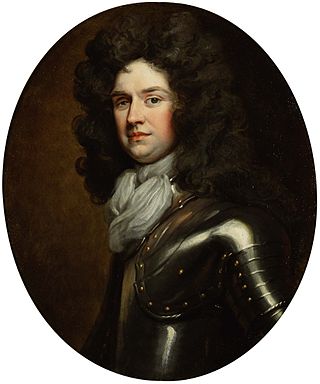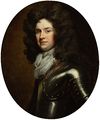
Marquess of Aberdeen and Temair, in the County of Aberdeen, in the County of Meath and in the County of Argyll, is a title in the Peerage of the United Kingdom. It was created on 4 January 1916 for John Hamilton-Gordon, 7th Earl of Aberdeen.

Duke of Atholl, named after Atholl in Scotland, is a title in the Peerage of Scotland held by the head of Clan Murray. It was created by Queen Anne in 1703 for John Murray, 2nd Marquess of Atholl, with a special remainder to the heir male of his father, the 1st Marquess.

Marquess of Linlithgow, in the County of Linlithgow or West Lothian, is a title in the Peerage of the United Kingdom. It was created on 23 October 1902 for John Hope, 7th Earl of Hopetoun. The current holder of the title is Adrian Hope.

Earl of Gosford is a title in the Peerage of Ireland. It was created in 1806 for Arthur Acheson, 2nd Viscount Gosford.

Earl of Rosse is a title that has been created twice in the Peerage of Ireland, both times for the Parsons family. "Rosse" refers to New Ross in County Wexford.

Earl of Antrim is a title that has been created twice, both times in the Peerage of Ireland and both times for members of the MacDonnell family, originally of Scottish origins.

Earl of Stradbroke, in the County of Suffolk, is a title in the Peerage of the United Kingdom. It was created in 1821 for John Rous, 1st Baron Rous, who had earlier represented Suffolk in the House of Commons.

Earl of Strafford is a title that has been created three times in English and British history.

Baron Farnham, of Farnham in the County of Cavan, is a title in the Peerage of Ireland. It was created in 1756 for John Maxwell, who had previously represented Cavan Borough in the Irish House of Commons. John Maxwell's son, the second Baron, was created Viscount Farnham in 1760 and Earl of Farnham in 1763. Both titles were in the Peerage of Ireland but became extinct when he died childless in 1779. His brother and successor, the third Baron, was again created Viscount Farnham in 1781 and Earl of Farnham in 1785. These titles were also in the Peerage of Ireland. His son, the second Earl, sat in the House of Lords as an Irish representative peer from 1816 to 1823. However, he had no children and on his death in 1823 the viscountcy and earldom became extinct.
Archibald Primrose, 1st Earl of Rosebery PC was a Scottish politician.
Thomas Charles Colyear, 4th Earl of Portmore, styled Viscount Milsington from 1785 until 1823, was a British landowner and politician.

William Charles Colyear, 3rd Earl of Portmore was a British peer, styled Viscount Milsington until 1785.

Charles Colyear, 2nd Earl of Portmore, KT, known as Lord Milsington to 1730, of Portmore House, Weybridge, Surrey, was a British Whig politician who sat in the House of Commons between 1726 and 1730, when he succeeded to the peerage as Earl of Portmore. He subsequently became a Scottish representative peer in the House of Lords. He was a racehorse owner and was known as Beau Colyear for his conspicuous dress.

General David Colyear, 1st Earl of Portmore KT, PC was a Scottish military officer and peer who served as the governor of Gibraltar from 1713 to 1720.

Viscount Maynard, of Easton Lodge in the County of Essex, was a title in the Peerage of Great Britain. It was created in 1766 for Charles Maynard, 6th Baron Maynard, Lord-Lieutenant of Suffolk. He was made Baron Maynard, of Much Easton in the County of Essex, at the same time, also in the Peerage of Great Britain. Both titles were created with special remainder, failing male issue of his own, to his kinsman Sir William Maynard, 4th Baronet. The 1st Viscount was unmarried and on his death in 1775 the baronetcy of Easton Parva, the Irish barony of Maynard created in 1620 and the English barony of Maynard created in 1628 became extinct. He was succeeded in the barony of 1766 and the viscountcy according to the special remainder by his kinsman Sir Charles Maynard, 5th Baronet, who became the 2nd Viscount. The latter was succeeded by his nephew, the 3rd Viscount, who served as Lord-Lieutenant of Essex. He had no surviving male issue and on his death in 1865 the baronetcy, barony and viscountcy became extinct. His granddaughter, Daisy Maynard, daughter of Colonel Charles Henry Maynard and future wife of Francis Greville, 5th Earl of Warwick, succeeded to most of the Maynard estates.
Events from the year 1703 in the Kingdom of Scotland.

Earl Tylney, of Castlemaine in the County of Kerry, was a title in the Peerage of Ireland. It was created on 11 June 1731 for Richard Child, 1st Viscount Castlemaine. The Child family descended from the merchant, economist and colonial administrator Josiah Child, who on 16 July 1678 was created a baronet, of Wanstead in the County of Essex, in the Baronetage of England. The first Baronet was succeeded by his son from his second marriage, Sir Josiah Child, 2nd Baronet.
Juliana Colyear, Countess of Portmore was an English noblewoman. She was the third wife of Peregrine Osborne, 3rd Duke of Leeds, and later the wife of Charles Colyear, 2nd Earl of Portmore, and mother of the 3rd Earl.

Earl of Arran is a title in the Peerage of Ireland. It is not to be confused with the title Earl of Arran in the Peerage of Scotland. The two titles refer to different places: the Aran Islands in Ireland, and the Isle of Arran in Scotland. The Irish earldom is held by the Gore family. The Scottish earldom is a separate title, held as a subsidiary title of the Duke of Hamilton.
Sir Alexander Colyear, 1st Baronet was a Scottish gentleman who lived most of his life in the Netherlands. He was created a baronet in the Baronetage of England in 1677 and is the ancestor of the Earls of Portmore in the peerage of Scotland.














